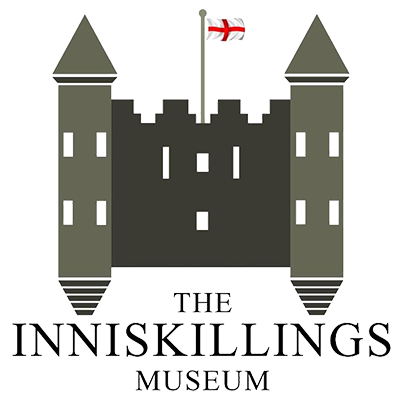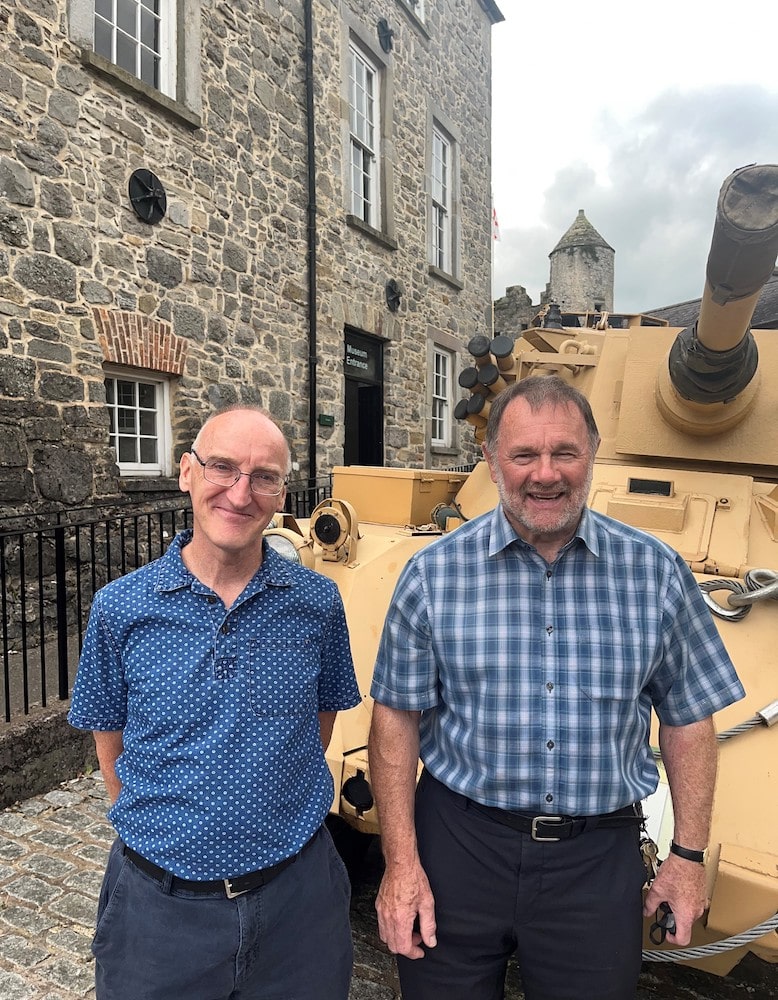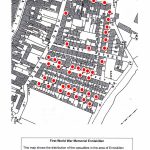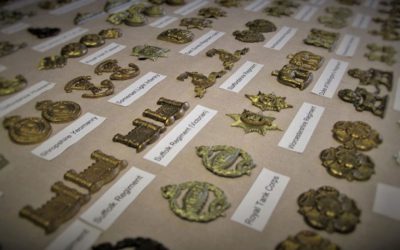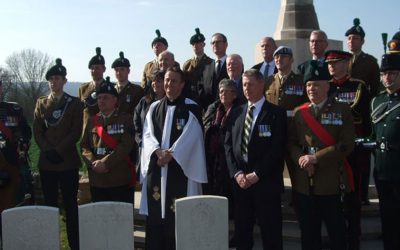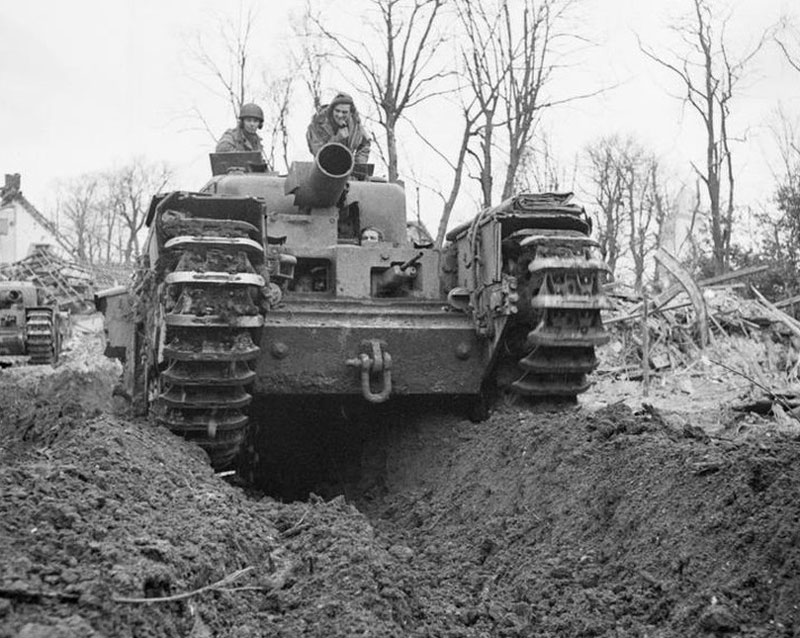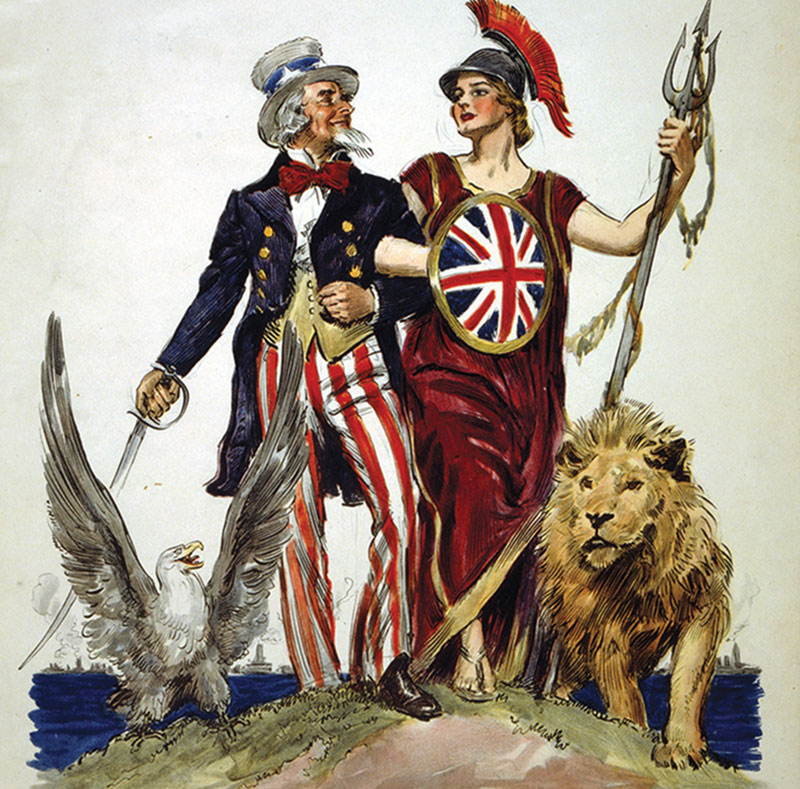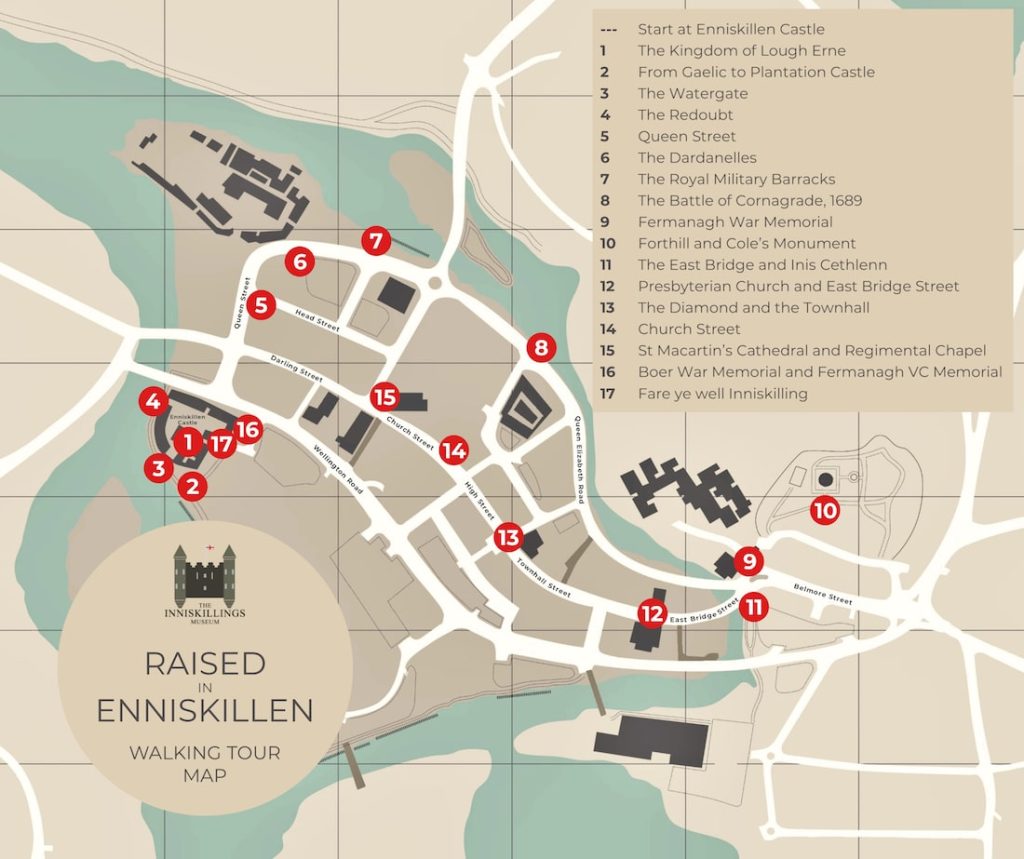Inniskillings Museum volunteer Mervyn Hall has been recognised as the regional winner of the prestigious “Volunteers for Museum Learning” award, presented by the British Museum in collaboration with the Marsh Charitable Trust. This award marks the fifteenth year of their partnership, aimed at acknowledging the invaluable contributions that volunteers make to help museums engage with their visitors.
In 2022, Mervyn embarked on a remarkable research journey focused on the courageous men from the Backstreets of Enniskillen who served during the First World War. The Back Streets were also known by another name, the “Dardanelles”, due to the death toll of residents who perished at Gallipoli in 1915. Many dreaded telegrams arrived at the doors of the Backstreets during the Great War, earning their postman the sombre nickname “Black Postie”.
Mervyn’s inspiration for this project stemmed from his exploration of existing materials at the Inniskillings Museum. He was drawn to an old black and white aerial photograph depicting the now-demolished Backstreets, which were situated between two army barracks. Over the course of a century, the tradition of young men from this area joining the army became deeply ingrained, with the Royal Inniskilling Fusiliers being the favoured regiment of choice.
The late John Deering, former teacher at Devenish College and volunteer at the Inniskillings Museum, had marked certain houses on the picture with red dots, each representing a soldier who died serving in the Great War. The late Clive Johnston, former police officer and volunteer at the Inniskillings Museum, researched and produced a book on the Enniskillen War Memorial, which included the stories of many men from the Backstreets. Drawing from these invaluable resources and the Inniskillings Museum’s extensive archives, Mervyn successfully identified an additional 25 men from the Backstreets of Enniskillen, bringing the total number of tragedies from these 6 streets to a staggering 70 men. This toll includes 10 pairs of brothers, as well as a father and son.
As Secretary of the Fermanagh Genealogy Centre, Mervyn played a pivotal role in inspiring the group to undertake a project that encompassed all aspects of life in this “lost area” of the town. With funding from the National Lottery Heritage Fund, facilitated by the Lough Erne Landscape Partnership, they created an online memory map of the Backstreets. The local community strongly supported the initiative, contributing photographs and information about ancestors who had been killed in the First World War. The memory map is available for viewing on the Fermanagh Genealogy Centre website.
Mervyn’s work has been incorporated into the Inniskillings Museum’s in-house database, which will be accessible to the public through the Access Inniskillings project. The development of an on-site Reading Room, scheduled to open in early 2024, has also been made possible through funding from Heritage Lottery Fund and support from the Lough Erne Landscape Partnership. Furthermore, an exhibition on spotlighting the soldiers from the Backstreets is set to debut in the spring, commemorating their sacrifices and preserving their memory for generations to come.
Each of the 11 winners, representing different regions in the United Kingdom, received a cash prize of £500, generously donated by the Marsh Charitable Trust.
The award ceremony took place at the British Museum on Monday 2 nd October. Mervyn, who was unable to attend, was represented by Maeve Cadden, Curator of the Inniskillings Museum, and Frankie Roofe, Chairman of Fermanagh Genealogy Centre. His fellow volunteers, Jamie Griffin and Aimee Elliot, were present to show their support.
Explore this historical area of Enniskillen via our virtual walking tour.
